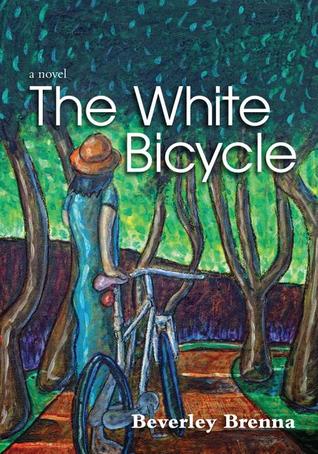 For me, one of the biggest surprises of the ALA Youth Media Awards was the selection of Beverley Brenna’s The White Bicycle as a Printz Honor Book (for outstanding YA literature). In the past, few Printz honors have gone to books published abroad and by small presses. Published in Canada by Red Deer Press, The White Bicycle fits both categories. It’s also the third and final volume in a series that began in 2005 with Wild Orchid and continued with Waiting for No One, published in 2010; in general, the first volume in a series gets more attention that the last. Finally, as in her earlier novels, Brenna eschews a traditional plot structure for a chronology of connected vignettes that taken together show the difficult maturation of her main character, Taylor Jane Simon, an older teenager who has Asperger’s syndrome.
For me, one of the biggest surprises of the ALA Youth Media Awards was the selection of Beverley Brenna’s The White Bicycle as a Printz Honor Book (for outstanding YA literature). In the past, few Printz honors have gone to books published abroad and by small presses. Published in Canada by Red Deer Press, The White Bicycle fits both categories. It’s also the third and final volume in a series that began in 2005 with Wild Orchid and continued with Waiting for No One, published in 2010; in general, the first volume in a series gets more attention that the last. Finally, as in her earlier novels, Brenna eschews a traditional plot structure for a chronology of connected vignettes that taken together show the difficult maturation of her main character, Taylor Jane Simon, an older teenager who has Asperger’s syndrome.
While Wild Orchid focused on Taylor’s first experience with a boyfriend and Waiting for No One on her efforts to get and keep a job, The White Bicycle places Taylor and her mother in an unfamiliar culture. Interestingly, it is Taylor who adapts better to life in France than her mother. Taylor’s intellectual, rational approach serves her well when she needs to learn French, and she is able to connect with the boy with cerebral palsy for whom she has been hired as a companion.
The problem is Taylor’s mother. Taylor is obsessed with the fact that a small fraction of those with Asperger’s are able to hold jobs and live on their own, and she doesn’t want to spend the rest of her life dependent on her mother. On a bicycle trip to a nearby beach, Taylor saves the life of an elderly woman, and the woman’s grateful daughter invites her to visit. There, Taylor observes the reversed roles of mother and daughter, and it gives her a new perspective on her own rocky relationship with her mother.
Brenna has spent much of her adult life working with persons on the autism spectrum, and her knowledge is evident. She captures well Taylor’s desires and concerns—her wanting to be independent, to help others, and to contribute her talents to the world. The bicycle symbolizes her desire for freedom, and readers see and admire her growing competence in living in a foreign country as she and her mother at times reverse roles. Her experience in this respect resonated with me, as I recently returned from Portugal, where I also learned the language rather quickly and was able to help my less linguistically gifted husband get around.
I did have one quibble with this otherwise meritorious title,. The author frequently mines for humor Taylor’s tendency to take idiomatic expressions literally. The constant use of these kinds of misunderstandings in this way makes it seem as if the author is making fun of her character, laughing at her and not with her. Furthermore, it didn’t strike me as especially realistic. By the age of nineteen, Taylor would have learned the meaning of these expressions, and learning another language would make her even more aware of them.
While Brenna has promised the end of this series, the open-ended nature of the resolution tells me there may be more of Taylor’s stories to come. And that would be a nice surprise.